What are the alternatives to Google's Android system?
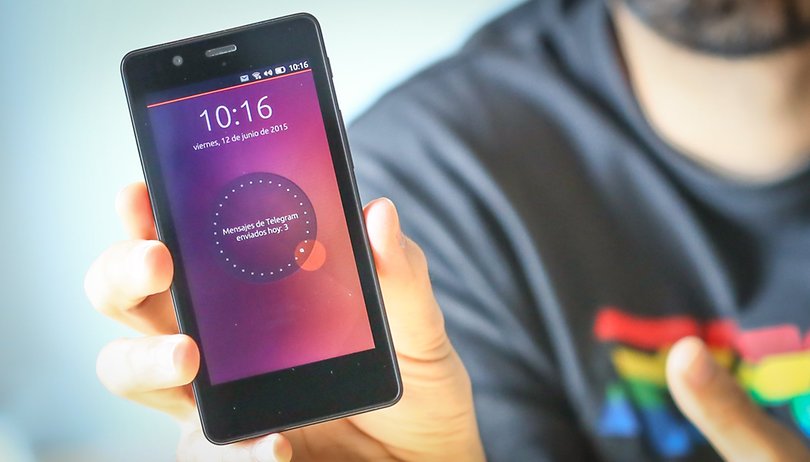

Smartphone manufacturers have little choice. Android offers a large user base. Play Store and Google services provide free functionality. But what if Google doesn't play along anymore? Or if you want to offer your customers an alternative to Google or even Android? What happened to alternatives like Ubuntu, Sailfish OS, Plasma Phone or Tizen? An overview.
In the light of the Huawei vs USA scandal, rumors are spreading that the Chinese tech giant is working on its own alternative to Android. Many others have tried this before. But even established big names such as Microsoft or Samsung have not yet been able to gain ground on the smartphone market with their developments such as Windows Mobile or Tizen. Nevertheless, the honorable mention of some Android alternatives is worthwhile.
Android, but without Google
The open source core of Android can also be operated without Google components. Fairphone Open is the best solution and you can also try it out with many smartphones available in stores. /e/ OS is also available as a version of Android without Google, and evens sells refurbished phones with it pre-installed. And you can remove Google from Android, as we did when we asked ourselves ...
iOS
iOS is largely identical to Android in terms of app selection and functionality. A few product philosophical differences as well as design differences to Android cannot be denied. iOS has a huge catch, however: Apple doesn't outsource it to third parties.
While there are so-called hackintoshs for PCs, i.e. Mac OS on non-Macs, nothing comparable has become known for smartphones. Hackin-iOS-Smartphones would be a violation of Apple's guidelines and would cost a lot of money. Those who want iOS must buy Apple.
Sailfish OS
We had tried Sailfish ourselves and were impressed. The operating system, which is also largely open source, can open Android apps from APK files, so in theory it has the same app variety as Android smartphones right from the start. But this feature turns out to be not very reliable: expect some crashes.
Even if Jolla, the company behind Sailfish, is trying hard with the Jolla Harbour, there are obviously no swarms of developers yet who are enthusiastic about his system. There are large customers for the operating system in China. An electronics manufacturer wants to operate its televisions and all smart home devices with a display with Sailfish. Since Sailfish offers white label licenses, we could already use Jolla devices without knowing it.
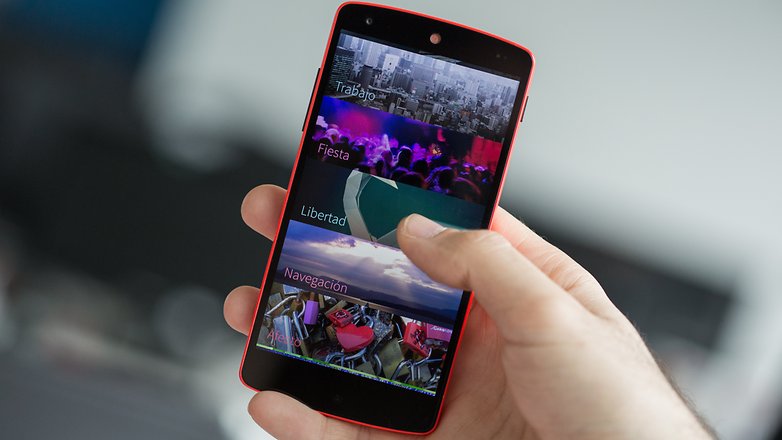
In contrast to Google, Jolla is therefore holding back with his own marketing interests at Sailfish and rather distinguishes himself as a pure software supplier. The open source approach allows upstream by the customer. So if a Jolla customer in Russia improves the performance of the Smartwatch user interface, this update will also be made available to customers from South America. Jolla does not have a Google-like obligation to pre-install an extensive software suite with extensive customer data collection.
Ubuntu Touch
Ubuntu Touch has failed gloriously. After an unsuccessful IndieGoGo campaign with the exorbitant goal of 32 million dollars, the only use case called Ubuntu Edge went up in flames even before its launch. With the Ubuntu Touch surface, the Edge was supposed to accommodate the form factors PC and Smartphone in a single device - as early as 2014. No one has really succeeded in doing so to date.
In 2017 even Ubuntu mother Canonical pulled the plug on Ubuntu Touch. But as so often in the open source world, a few volunteers have kept their courage. You maintain a fork of the system under UBports. A more recent project now has a much better chance of achieving the old goal of Ubuntu Touch with its product.
Plasma Mobile
The Plasma Mobile used by hardware manufacturer Purism, among others, is based on the desktop environment KDE for Linux. The Purism smartphone Librem 5 should be able to be used like a normal PC, if it is finished one day. And then Ubuntu Touch should be installed on it.
The desktop environment KDE enjoys a large user base in the Linux world and has ample influence on application developers. With Plasma, it offers the latter the tools to convert existing programs into apps. It is hoped that desktop and mobile applications will finally work hand in hand on a single device, just as the Ubuntu Edge vision once envisaged.
- Plasma Mobile Homepage
Bottom line
The trend is towards openness. Jolla and the mostly open-source Sailfish OS are popular in Russia, China and South America, but fly completely under radar in the West. Ubuntu touch heirs UBports and Plasma, on the other hand, depend on the success of open hardware. The spearhead here is the Purism Librem 5. If the first truly free smartphone turns out to be a success, it could herald a new era of digital freedom.
Until then, we will be dependent on US closed-source hardware in the form of Qualcomm or Apple chipsets or software such as Google Apps or iOS and will only be able to escape into an alternative with much effort and courage.







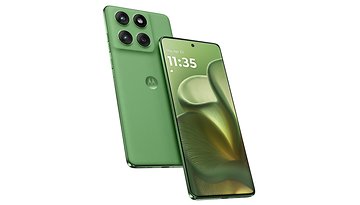


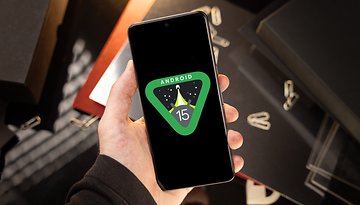

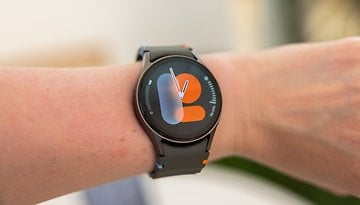

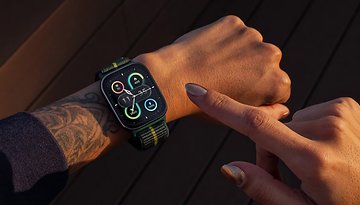





-
Admin
Sep 25, 2019 Link to commentLet us see how Huawei manages to solve the apps portability problem and it could star
Huawei will have to solve the problem of app portability and if they succeed more alternatives to the google monopoly will emerge
-
Admin
May 30, 2019 Link to commentI am absolutely convinced it was a mistake to kill Windows Mobile and it is time to bring it back.I still miss my windows phones and have a windows tablet that, as long as the hardware holds, I will keep using.
iOS. That's all. Since the demise of Windows Phone, nothing else remains. Only iOS...sadly.
In the above list you can add the Ark OS, the alternative offered by Huawei. Let's hope this operating system will gain a market share, given that Huawei is a major mobile phone maker.
Agree that Huawei’s Ark os has potential, especially if Huawei makes it usable for other phones.
I think purism is going to release their phone. They had a heat issue with the cpu that was a holdback, but a driver update solved that. I've pre ordered mine.
Pine 64 has a dev kit out for their phone hardware. It will be a lot cheaper but less powerful. You should be able to run either Android or linux on it.
I’ve heard about a Linux phone coming and think that could be a way to break free from the two top os’. I really feel that a Linux os phone has great potential for usability.
Apple has stuck to its policy of not licensing its OS to other manufacturers. This was the greatest shot in the arm for the development of Android. Now that any manufacturer can make a mobile phone and put in Android, there's no encouragement for the daunting task of building and maintaining a new operating system. Why go to the trouble when you can just rake in some money by dazzling people with some great hardware specs and then putting in Android?
One factor however, that can induce the development of a new OS is fear of Google setting excessive controls on Android. Aka Tizen. But with Tizen, Samsung did a really poor job and ultimately had to relegate it to smartwatches and TVs. Where it's likely to die an early death.
With Sailfish OS, I think too much geekery by Jolla resulted in the strangling of what had great potential. No mass marketing. Only appeals to the geek crowd.
Nobody much mentions Firefox OS these days. It made the mistake of being designed for low-end phones. Aiming low gets you nowhere. Like Marxism.
You don't need to get rich. Make everyone poor.
Then take the case of custom ROMs. Although they can't strictly be called alternatives to Android and iOS, for all practical purposes they function like alternatives. Yet do you see any real juice in them? Why exactly do you want them? To reduce bloatware? Not a very good reason, considering that since the majority of Android users use a large smorgasbord of apps, just getting rid of three or four pre-installed ones isn't going to save you that much battery or space. With the spectacular increase in processing power and inbuilt memory of even midrange phones during the course of the past few years, it really makes no sense over or underclocking the processor. And moreover, none of the custom ROM makers seem to have a clearsighted view of their own future. Whatever happened to Cyanogenmod? I still can't get the hang of it, what exactly happened. Why it had to rename itself. Plus the security. I feel secure using my non-rooted Samsung with Samsung Knox installed for a superb BYOD experience. Why would I risk the security loopholes of using a custom ROM just because I need a different looking interface (which can be achieved to a large extent using a launcher)?
I think the future lies in not thinking of Android as an operating system on the same platform as iOS, but rather thinking of it as some basic raw material like cement or stone from which one can build great personalized edifices.
I've tried lots of alternatives, looking for a hidden gem of an OS... Unfortunately i'm not sure that one actually exists.
Windows Mobile is pretty good, and I like the way it looks. Having Xbox achievements is nice, and built in features like data sense are great. Unfortunately, as with nearly any alternative to android or iOS, the lack of apps is noticable. Still it's pretty nice if you can find ways around the most popular apps you're missing. Ideally though i'd want something open source.
So since I had an old OnePlus One lying around, I decided to stick Ubuntu Touch on it and see how it handled. Ubuntu Touch is actually supported in a semi-official capacity by UBports... I suppose since the project was dropped, the OnePlus port is about as official as it gets! Anyway, it's terrible. Sorry, but the UI design doesn't make any sense, the app store barely functions, there's barely anything there, and most apps that I tried would just close out instead of opening. It's a real shame too because my hopes were high.
Firefox OS? Don't even go there. Feels like using a featurephone, I can't bear it.
I'd like to give Sailfish OS a go, maybe if I get one of those Jolla phones at some point. They're pretty neat.
I suppose the only open source thing I could realisticly do on mobile would be to install the Android Open Source Project and use F-Droid instead of Google Play.
My quest to become completely open source continues...
This article was obviously written by someone who has a personal problem with Microsoft. I.e. Steve Job's claim that MS stole HIS Xerox GUI. I do not know how a window's phone works but WIN10 works very well on my NEXTBOOK and my wife's NuVISION tablets, with or without a keyboard and mouse. So well that we leave our laptops at home, including extended RV trips.
Great article, and great comments so far (this time) .
From a user point of view, the current existence of two main competitors means he can't easily move from one system to the other due to incompatibilities. What the user wants and needs is universality of data and apps but this is very unlikely to happen in the near future. For a user, more contenders only means more incompatibility.
I dont agree that we need more OSs. With Android you have many players using a common platform which they can customise which creates competition in itself. But having them all using Android makes it more convenient for the user, it means I can switch from Samsung to HTC or from HTC to Huawei and still have all the same apps on my phone. Having a 3rd or 4th OS just makes it less easier to switch unless there is app compatibility
Great comment. It's true that as users, we shouldn't seek more competition for the sake of competition.
Any developer who wants to challenge Android and iOS with a new mobile operating system has a daunting task. Getting hundreds of top content creators and sites to make apps for that platform. Which they won't unless the subscriber base is huge. And the subscriber base won't be huge if there aren't apps a-plenty. A vicious cycle, really. One way around this is to get the core services to develop apps for the new platform. Like Facebook, Twitter, WordPress, mail applications, task managers, the most popular video and music players. Then the subscriber base will rise, and then the independent developers will follow with their apps.
Ummm.......iOS?
Man i really was interested in Sailfish after reading this article and went to take a look at the Jolla Phone, so disappointed by the specs...
This post brings me new ideas
I followed Ubuntu touch for awhile. I would like to have the ability to run a desktop OS on my tablet. I'm no fan of Microsoft and consider Office as about their only significant contribution at this point. It is the only one of their products I use and that is simply because is no viable alternative in the mass business environment at this time. My OS of choice on desktops and laptops is Linux. I've been using it as my primary OS since the 90s. Even with that said I still use MS Office mobile for critical work that requires collaboration with others.
My beefs with Android are the latency in updating to newer kernel versions, the fact that the Play Store for the most part is an unorganized conglomeration of little more than games, and hardware vendors locking out root access along with preinstalling a bunch of garbage that you can't remove without root access.
I think Android has plenty of possibility but that all relies on Google deciding the direction they are going to go with it and if it is going to end up merged with their Chrome OS. At this point and time due to the variety of hardware vendors using Android I don't see the environment changing much. Any new OS coming along has to be able to support multiple hardware platforms and be ralitivly easy to install. In that arena I would think Canonical with newer Linux kernels supporting more hardware would stand the best chance. Even at that you are dealing with the fact that Canonical does everything from the point of view that you are using Ubuntu. While Android is sitting on top of a Linux kernel dealing with flashing firmware in Linux is no small task and for the inexperienced can lead to a bricked device.
Interesting read. Nothing wrong with a little competition. It's healthy for the market and good for the Consumer.